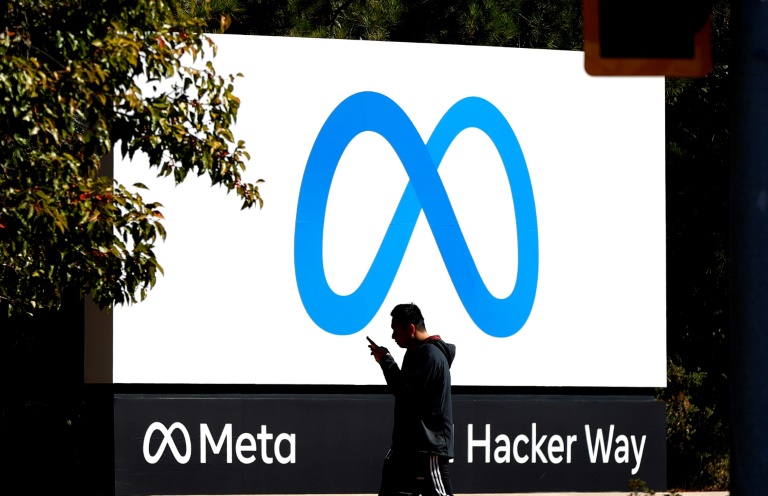SOCIAL
Op-Ed: Extremely tricky unique court case for Meta, Facebook might clarify online legal advertising issues

Facebook parent Meta says its was told by Russian authorities to stop the work of its fact-checkers – Copyright AFP Charly TRIBALLEAU
The Australian Competition and Consumer Commission (ACCC) has thrown a palette of legal bricks through one of the more complex legal issues on social media. The ACCC alleges that Meta engaged in “false, misleading or deceptive conduct by publishing scam advertisements”.
(These ads include a secondary issue; the use of celebrity images on scam ads. That’s been previously covered. This article is intended to focus on the macro issues affecting social media. There’s a civil case filed by Australian billionaire Andrew Forrest which includes allegations of money laundering, and related problems.)
These are all serious enough legal problems without the use of the word “scam”. The ads related to cryptocurrency scams, add some more depth and difficulty.
If you’re thinking this case is the entire bandwidth of grim, expensive legal issues for social media advertising, you’re right. It’s just that this case is far more complex than it looks. “False, misleading, and deceptive conduct” is pretty much the entire spectrum of advertising law Thou Shalt Nots.
False advertising is of course illegal. Misleading and deceptive conduct are also illegal with added upside on the subject of how publishing online ads works.
Then there’s the scams issue. Online scams are at plague levels worldwide. This case plugs in directly into just about all aspects of that big messy situation. This is where “false, misleading, and deceptive conduct” turns potentially criminal.
There’s, therefore, a lot at stake for advertisers, social media, and the public. ACCC is doing its job as a regulator, targeting a unique combination of major online advertising issues in extraordinary depth. This is effectively a test case. ACCC’s public statement regarding the case is interesting reading and includes some consumer advice.
Meta/Facebook’s problems
One of the biggest issues for Facebook is advertising. This is Facebook’s core revenue base. It’s tricky enough without scams, and decidedly thankless as an advertising environment.
Online advertising is a farce. It’s burdened with payment systems, absurd algorithms, and the rest of the dung cart of techno-self-hyped garbage that doesn’t work. It rarely reaches audiences. Facebook is arguably a bit better than most, because the users are voluntary platform-dwellers.
These users might actually be interested in products and services. They’re online on a continuous basis. Ads aren’t directly search-related. Facebook is a more efficient form of “passive SEO” in some ways.
… This is why this case is so important. It strikes directly at Facebook’s major legal and revenue issues. It directly affects the user base and user legal issues.
It shouldn’t be assumed that Facebook is necessarily happy with the way things work. Facebook is a flak magnet for criticism on so many issues related to its algorithms, ads, and scam issues.
Much of the criticism is unrealistic and staggeringly myopic in legal terms. This is social media. Social issues naturally impact the world’s biggest social media platform. Facebook didn’t invent the social environment; it reflects it, all too well, sometimes. It’s often like blaming the phone company for a crank call, but not the caller.
Can Facebook vet all ads for content issues? Probably not. It’d be horrendously expensive. Online advertising isn’t usually done under oath, either. How do you fight crime with a social media platform? You can try, sure, but what’s possible has to be considered.
Ironically, the case might also give Facebook some useful legal options, win, lose, or draw. Facebook is not a law enforcement agency. Its best and by far simplest option is to distance itself from legally dubious content with its Terms of Use. Any content which is deemed unacceptable can simply be refused or trashed on that basis. No comeback.
The main difference here is that managing ads can be done at the back end, not the live content end. Ads could be refused on any given basis, and terms reflecting Facebook’s absolute final say in what’s published and what’s not are unarguable.
Global ramifications
The truth is that the law follows its own logic, right or wrong. This case will create either ripples or waves throughout the global regulatory and civil legal environment. Even the huge regulatory coma in the US could benefit from some findings in multiple areas.
The regulatory environment needs direction. Online law is still way too slow and well behind most of the common legal issues. This case could be a nice catchall reference for a lot of online legal problems.
Civil law is far more volatile, with highly motivated people’s cases creating very subjective, limited legal precedents on a routine basis. This is unavoidable and sometimes beneficial, but a wider frame of legal reference would definitely clarify some issues. (This is similar to “So you’ve been hit by an underage drunk driving a train in a supermarket” in civil law terms.)
The world needs a clear legal framework to manage the online scams, civil issues, and above all the liabilities of social media for commercial content. Nobody’s likely to celebrate this court case, but maybe you should. This could clean up a lot of content and conduct which is long overdue for eradication.
Facebook could shut down a huge amount of possible legal trouble for itself and lose problem advertisers as well. The wider social media environment could benefit a lot from a safer and simpler online advertising environment.
It can be a win-win, done properly. This is definitely not the time or place for “trial by media”. The legal issues must be considered and done well. With a bit of luck, the world may benefit hugely from this case.
_____________________________________________
Disclaimer:
The opinions expressed in this Op-Ed are those of the author. They do not purport to reflect the opinions or views of the Digital Journal or its members.
Source link
SOCIAL
Snapchat Explores New Messaging Retention Feature: A Game-Changer or Risky Move?

In a recent announcement, Snapchat revealed a groundbreaking update that challenges its traditional design ethos. The platform is experimenting with an option that allows users to defy the 24-hour auto-delete rule, a feature synonymous with Snapchat’s ephemeral messaging model.
The proposed change aims to introduce a “Never delete” option in messaging retention settings, aligning Snapchat more closely with conventional messaging apps. While this move may blur Snapchat’s distinctive selling point, Snap appears convinced of its necessity.
According to Snap, the decision stems from user feedback and a commitment to innovation based on user needs. The company aims to provide greater flexibility and control over conversations, catering to the preferences of its community.
Currently undergoing trials in select markets, the new feature empowers users to adjust retention settings on a conversation-by-conversation basis. Flexibility remains paramount, with participants able to modify settings within chats and receive in-chat notifications to ensure transparency.
Snapchat underscores that the default auto-delete feature will persist, reinforcing its design philosophy centered on ephemerality. However, with the app gaining traction as a primary messaging platform, the option offers users a means to preserve longer chat histories.
The update marks a pivotal moment for Snapchat, renowned for its disappearing message premise, especially popular among younger demographics. Retaining this focus has been pivotal to Snapchat’s identity, but the shift suggests a broader strategy aimed at diversifying its user base.
This strategy may appeal particularly to older demographics, potentially extending Snapchat’s relevance as users age. By emulating features of conventional messaging platforms, Snapchat seeks to enhance its appeal and broaden its reach.
Yet, the introduction of message retention poses questions about Snapchat’s uniqueness. While addressing user demands, the risk of diluting Snapchat’s distinctiveness looms large.
As Snapchat ventures into uncharted territory, the outcome of this experiment remains uncertain. Will message retention propel Snapchat to new heights, or will it compromise the platform’s uniqueness?
Only time will tell.
SOCIAL
Catering to specific audience boosts your business, says accountant turned coach

While it is tempting to try to appeal to a broad audience, the founder of alcohol-free coaching service Just the Tonic, Sandra Parker, believes the best thing you can do for your business is focus on your niche. Here’s how she did just that.
When running a business, reaching out to as many clients as possible can be tempting. But it also risks making your marketing “too generic,” warns Sandra Parker, the founder of Just The Tonic Coaching.
“From the very start of my business, I knew exactly who I could help and who I couldn’t,” Parker told My Biggest Lessons.
Parker struggled with alcohol dependence as a young professional. Today, her business targets high-achieving individuals who face challenges similar to those she had early in her career.
“I understand their frustrations, I understand their fears, and I understand their coping mechanisms and the stories they’re telling themselves,” Parker said. “Because of that, I’m able to market very effectively, to speak in a language that they understand, and am able to reach them.”Â
“I believe that it’s really important that you know exactly who your customer or your client is, and you target them, and you resist the temptation to make your marketing too generic to try and reach everyone,” she explained.
“If you speak specifically to your target clients, you will reach them, and I believe that’s the way that you’re going to be more successful.
Watch the video for more of Sandra Parker’s biggest lessons.
SOCIAL
Instagram Tests Live-Stream Games to Enhance Engagement

Instagram’s testing out some new options to help spice up your live-streams in the app, with some live broadcasters now able to select a game that they can play with viewers in-stream.
As you can see in these example screens, posted by Ahmed Ghanem, some creators now have the option to play either “This or That”, a question and answer prompt that you can share with your viewers, or “Trivia”, to generate more engagement within your IG live-streams.
That could be a simple way to spark more conversation and interaction, which could then lead into further engagement opportunities from your live audience.
Meta’s been exploring more ways to make live-streaming a bigger consideration for IG creators, with a view to live-streams potentially catching on with more users.
That includes the gradual expansion of its “Stars” live-stream donation program, giving more creators in more regions a means to accept donations from live-stream viewers, while back in December, Instagram also added some new options to make it easier to go live using third-party tools via desktop PCs.
Live streaming has been a major shift in China, where shopping live-streams, in particular, have led to massive opportunities for streaming platforms. They haven’t caught on in the same way in Western regions, but as TikTok and YouTube look to push live-stream adoption, there is still a chance that they will become a much bigger element in future.
Which is why IG is also trying to stay in touch, and add more ways for its creators to engage via streams. Live-stream games is another element within this, which could make this a better community-building, and potentially sales-driving option.
We’ve asked Instagram for more information on this test, and we’ll update this post if/when we hear back.
-

 MARKETING7 days ago
MARKETING7 days agoRoundel Media Studio: What to Expect From Target’s New Self-Service Platform
-

 SEO6 days ago
SEO6 days agoGoogle Limits News Links In California Over Proposed ‘Link Tax’ Law
-
SEARCHENGINES6 days ago
Daily Search Forum Recap: April 12, 2024
-

 SEARCHENGINES5 days ago
SEARCHENGINES5 days agoGoogle Core Update Volatility, Helpful Content Update Gone, Dangerous Google Search Results & Google Ads Confusion
-

 SEO5 days ago
SEO5 days ago10 Paid Search & PPC Planning Best Practices
-

 SEO7 days ago
SEO7 days agoGoogle Unplugs “Notes on Search” Experiment
-

 MARKETING6 days ago
MARKETING6 days ago2 Ways to Take Back the Power in Your Business: Part 2
-

 MARKETING4 days ago
MARKETING4 days ago5 Psychological Tactics to Write Better Emails















You must be logged in to post a comment Login